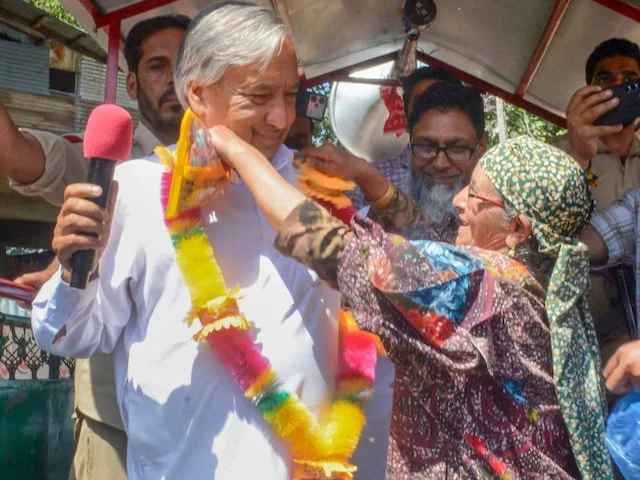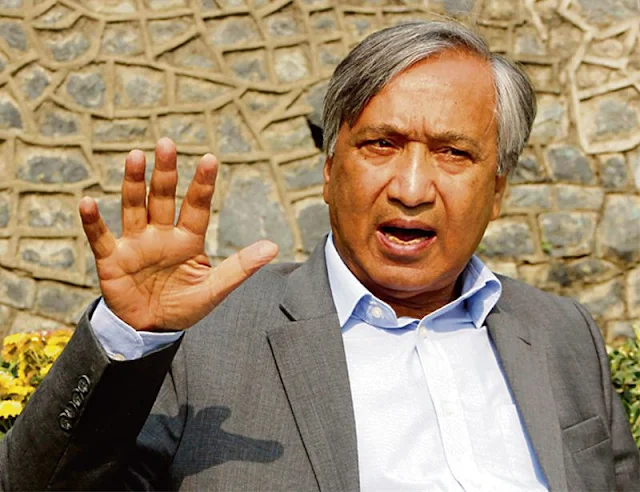In the international sphere, an orgy of imperialist violence and wars on multiple fronts is unleashed on the world’s population to divide people on religious and nationalist lines, destabilise peace, deepen crises, and control resources in the name of nationalism and religion. Under the guise of fighting Islamic terrorism and exporting the so-called market-led Western democracy, imperialist powers are ghettoising Muslims to control natural resources in various parts of Asia, as well as in Arab and Middle Eastern countries.
Hindutva forces, as allies of Western imperialism, are unleashing everyday street violence against Muslims in India in the name of creating an exclusionary Hindu state (Hindu Rashtra) by dismantling the egalitarian citizenship rights granted by the Indian Constitution.
Amidst the backdrop of the othering and ghettoisation of Muslims, the victory of Communist Party of India (Marxist) candidate and communist leader Mohamad Yousuf Tarigami in the Kulgam constituency of Kashmir in the recently concluded elections offers hope, as it shatters both imperialist propaganda on the international stage and Hindutva campaigns within the country.
Despite the dominant narrative of religious and majoritarian identity-based political campaigns, the communists managed to retain their electoral victory in Kulgam, largely due to people’s trust and political efforts led by the Communist Party under the leadership of Tarigami, who focused on addressing the everyday issues of the people.
Although the majority of people in the Kulgam constituency are Muslims, they did not vote along religious lines. Instead, the Muslims of Kulgam rejected religious polarisation by defeating the hardline, Jamaat-e-Islami-supported candidate. This marks Tarigami’s fifth victory in Kulgam, having also won the constituency in the 1996, 2002, 2008, and 2014 elections. By voting for communist leader Mr. Tarigami, the people of Kashmir have rejected the religious politics of the Hindutva-PDP alliance, instead choosing secular politics.
The victory of the CPI(M) candidate reflects the fact that the Muslims of Kulgam opted for class politics over majoritarian religious identity politics of dominance. This election result offers hope for the future of class-based politics in Kulgam, Kashmir, and India as a whole.
The victory of class politics in this Kashmir constituency also reflects the democratic resilience of the communists, who are fighting against all odds in the contemporary political landscape of regional and national politics in India. However, mainstream media portrays this victory as the isolated success of a leftist leader, aiming to undermine the political consciousness of voters and their support for the Communist Party in the elections.
Such a ruling-class agenda serves to perpetuate stereotypes against Muslims. This victory of the communists in Kulgam dispels two dominant myths about Muslims: first, that Muslims vote along religious lines, and second, that Muslims are not secular.
Mr Tarigami has always believed and argued that “the tradition of Kashmir has always been the sacrifices of the working class, and we are hopeful that it will continue. The Zaldagar martyrs of 1865 laid the foundation of a struggle against the exploitation and atrocities on the artisans, a prominent section of the working class. The Shawlbaff protest launched at Zaldagar against the ruling class has given vent to numerous movements of the working class which are awaiting successful culmination.”

Such a political approach underscores the historical foundations of working-class politics represented by Mr. Tarigami, rooted in a legacy of solidarity and radical struggles for livelihoods, human rights, and better working conditions in Kashmir and beyond.
The victory of class politics in Kulgam demonstrates that the struggles of the working class are central to various communities and their efforts for effective political mobilisation for democratic, secular and scientific transformation aimed at achieving social, economic, and political justice and equality. Religious politics domesticates individuals and their creative labour, serving to uphold the interests of both ruling and non-ruling elites.
Voting for religious politics within an electoral democracy often facilitates capitalist interests, which are contrary to the needs of the working masses. In contrast, working-class politics can truly uphold and realise the aspirations of the people while promoting the sustainability of the planet.
The rise of class politics is essential for defeating imperialist geopolitics, religious fundamentalism, and terrorist violence in Kashmir, which undermine peace in the region. Grassroots activism focused on the everyday issues faced by people can ensure peace and prosperity while deepening democracy and empowering inalienable and universal citizenship rights as outlined in the Indian Constitution.
For now, it is time to celebrate this significant victory of class politics in the Kashmir elections.
Author is Scholar based in UK
Courtesy: CounterView
